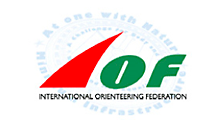 – Even if WOC is a very important and well-established event and product, the International Orienteering Federation has done and is planning to make remarkable changes to the programme and the appearance of the event, Matthias Niggli, Janne Salmi, Simone Niggli and several other coaches, elite athletes, former elite athletes and other important orienteering personalities write in an open letter to the IOF Council and National Federations.
– Even if WOC is a very important and well-established event and product, the International Orienteering Federation has done and is planning to make remarkable changes to the programme and the appearance of the event, Matthias Niggli, Janne Salmi, Simone Niggli and several other coaches, elite athletes, former elite athletes and other important orienteering personalities write in an open letter to the IOF Council and National Federations.
The letter is signed by Per Forsberg (high profile arena speaker within orienteering and TV commentator), Simone Niggli (the best woman orienteer ever, Switzerland), Brigitte Grüniger Huber (former Swiss elite orienteer), Radek Novotny (Czech coach), Daniel Hubmann (multiple World Cup winner and World Champion), Bruno Nazario (former Portuguese national team coach), Tom Quayle (Australian WOC coach), Matthias Niggli (former Swiss national team coach and elite athlete) and Janne Salmi (former elite athlete and member of the Foot-o commission; responsible for the World Cup and visibility of orienteering in the Foot-o commission).
The letter is a reaction to the Extraordinary General Assembly during WOC in Scotland which the IOF has called in order to discuss a proposal for organising the World Orienteering Championships (WOC) alternating years as a “forest WOC” and a “sprint/urban WOC”.
– Too early and radical
The main point in the letter is that more time to consider the future of international events; “we feel, that it is too early and radical to just change WOC into two different, alternating events”, it is written in the letter. A number of risks by splitting the WOC are named, including possible difficulties in organizing the split WOC, the notion that a split WOC is too compact for media and spectators and a number of other concerns. The conclusion finishes off with “Rather than splitting the WOC, we’d (in case of difficulties in finding a WOC-host annually) rather see WOC organized biannually and simultaneously much effort to be put on rising the status on EOC and World Cup”.
What do you think about the future of the World Orienteering Championships? Should it be split in an “urban” and a “forest” WOC?
PS! World of O will come back with a thorough article considering the different options for the World Orienteering Championships within the next 2 weeks – any input in the comments to the current article will be important input.
 World of O News
World of O News
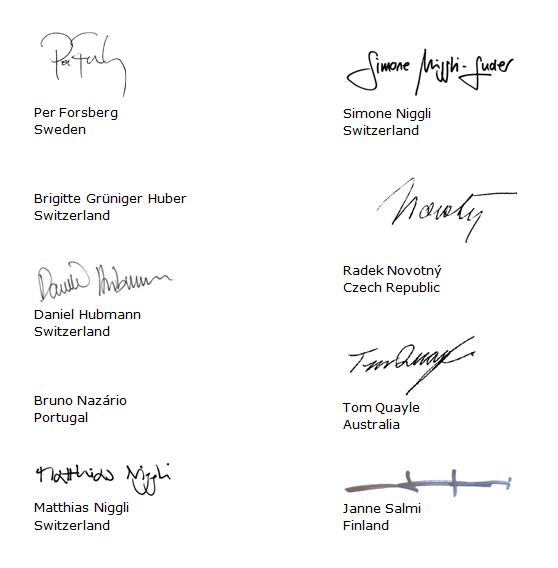
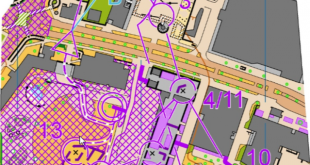
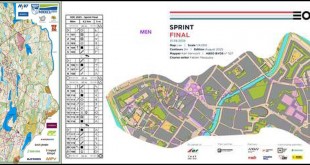
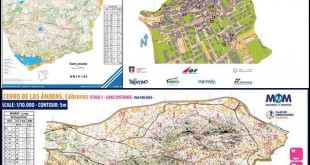
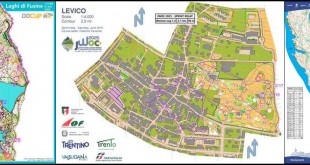

They are definitely right! Split WOC would be too radical and it would make our sport look very complicated to media etc.
If I’ve understood right, the main problem with getting organizers for WOC nowadays is requirement of TV-broadcast. In my opinion it could be arranged much easier than now (when they usually have national TV-company doing the broadcast which is expensive). For example this year’s JWOC video stream is almost good enough for WOC and propably not very expensive for organisers.
WOC-program is good right now, so don’t spoil it and make our sport even more marginal than it is now!
In my opinion it is good as it is now. I would recommend leaving WOC in annual form, although EOC should be promoted and it’s level should be highten.
I agree 100%! I would definitely prefer biannually organized and even extended WOC (2 weekends) and in between EOC. World Cup on the other hand should get a higher status, organized as annual competition series , including also traditional events that are “high ranked” by our elite orienteers.
Great letter !
I would also add that with split WOC the visibility would be lower : how to explain to non-orienteers (public, partners ) that one athlete is world champion one year , and not competing the other year because it’s sprint WOC?
IOF don’t want to share the federations feedbacks they got in the beginning of the year, and there must be a reason. Scandinavian federation want to introduce split WOC by force, just because there is no organiser for 2019.
Fairness and course quality has to be the first task of IOF, providing good experts with knowledge of the organisations, provide IT and TV productions, and then organisers will come more easily !
I think that splitting the WOC would be a good thing. It would be easier for smaller federations to organize WOC, and it would be cheaper for smaller federations to travel and participate in WOC, wich I find good for the sport. It would also be easier for foreign media to visit WOC, and then we would also get a better media coverage of WOC
Actually I don’t think that it would be less visibility with split WOC, because it’s still World Championships.
Also, today the WOC-week is quite long, and it’s a struggle for IOF to find a good summer week to organize it on, due O-Ringen, the Olympics, FIFA World Cup, etc. If you split WOC you will have a shorter week, and then its easier to fit in to get a better media coverage.
The more often a championship is held, and more disciplines there are in each championshhip, the lower status it is to win. Comparing Simone Niggli’s 19 individual WOC-golds against Annichen Kringstad’s 3 back to back golds in the 1980’s isn’t really such a big difference; just as Ole Einar Bjørndalens 94 WC victories compare to Ingemar Stenmark’s 85. Fewer world championships will rise the status of winning a gold? We see this in several sports. I’ve lost track of all the world champions over the last 15-20 years, but I can probably name all in the 1980’s.
The best sprinters in Norway are probably Olav Lundanes and Mari Fasting. As long as all disciplines are collected in a single WOC-event, they will not run the sprint event as long as they’d rather win the long distance event. In stead, the Norwegian sprint team is filled up with “B-runners” as not many really specializes in sprint.
With the advent of the Euro CityRace tour, an urban long/middle distance could be a possibility with a split WOC.
I am undecided, but I identify a halfway position with relay and classic always included, and sprint+sprintRelay alternating with full scale traditional middle (including a qualification day.)
What I find frustrating about this whole discussion is the complete lack of fact based arguments. The entire thing is based on conjecture. As an athlete and an individual I, of course, like everyone, else, have preferences for what I think the WOC format should be and what I like and don’t like. But it shouldn’t be an argument about what individuals like but rather what is most likely to be best for the sport in the long run (which includes athletes and other stakeholders liking what is happening).
The whole process should have begun with some basic research and surveys. What are the athletes preferred events. What are their views towards the various disciplines. How has splitting a world champs affected other sports (Canoe Kayak with whitewater and flatwater for example)? How much foes it cost to gist current major orienteering events – specifically what is the cost of hosting major sprint weekends vs forest only weekends vs mixed events?
Until we have factual answers to these kinds of questions we’re really just guessing about what’s best and we have debates such as the one I’ve had over whether it’s cheaper to host a sprint WOC than a forest WOC or not. We have no numbers in front of us so we’re just going on gut feel.
This open letter starts off on the right tone of stating that we need more time to test new formats before we make an changes to WOC. Nonetheless further down they make claims that a longer program would be more appealing to media. Do they really know that? They’re not media experts and I’m guessing (but I could be wrong) that they didn’t consult any media about the answer to this question let alone ask a significant sample size of media outlets and see what’s of most interest to the media.
We”ve forged ahead without a proper basis for good decision making once in the last few years and were close to making the same mistake again. Will orienteering survive? Yes. Will it thrive like it has the potential to do? Only if we luck into the best answers.
We’ve consulted a few journalists. They’re saying that at least national TV-companies prefer longer Championships when sending their own people over to cover the events. What should be done (as we point out), is – however – a thorough analysis / questionnaire to media-people (as well as spectators, athletes and officials), before making a decision of this importance. At the moment we’re just guessing what might happen if WOC is splitted.
I fully agree to the letter writers.
If IOF is in difficulties to find organizers of the WOC, why not discuss (again) the interval of WOC?
Why not back to the biannual WOC and a Worldcup which earnes this denomination and – at the same time- can serve as a training ground for future WOC organizers? Of course only if (inexperienced) WC organizers are supported by the IOF as the letter writers demand it as well.
I agree with Jeff, though to be fair to the letter writers they do call for a wide discussion. But in terms of relevant facts from an organiser perspective, here are a few…
The current format was approved in 2012 and implemented within two years, with a brand new sprint-relay format. The IOF proposal has a four-year lead time.
WOC comes after O-ringen and Jukola when finding a slot in the calendar, and doesn’t even have the clout to move WMOC. For 2018 it also must avoid World cup and CISM cadet games (!)
WOC is a money-loser. Before TV costs, the IOF sanction fee is already 60keu for 2018.
The legacy of the two WOCs I’ve been involved in (93 & 99) was one of burnt-out officials and a local club (HVO, INVOC) with no appetite for more big events.
Everyone has opinions – as a spectator/organiser RaceTheCastles showed my prejudice – Urban races in major towns, then some travel days before the forest races in spectacular locations. In the same sense, WOC2014 was already a “split WOC” with sprints quite far from forest races. It is quite normal to have WC round in adjacent countries, so why not split-WOC.
If I wanted to host a big elite race, why would I accept all these constraints and hassles? Why wouldn’t I spend that 60keu on bringing in the best athletes to run a format which best suited my local area, and appealed to my local TV company, be it Forest, Urban or both.
Why is it so difficult to find an organizer for WOC? Because of the huge costs imposed by IOF. I heard that Latvian federation is trying to raise half million euros for WOC2018. That is outrageous! How much does it cost to organize Latvian champs? 5000? Not much more. And it is fully financed by entree fees.
Why would WOC be so much more expensive? Same maps, same course setters, etc. Okay double for quality control, but not 100x more! Why do we need TV? Who is going to pay for it? Why such a high fee for IOF, especially when there are so few who want to host? Athletes arrive, compete, get medals, go home, results published. Simple and inexpensive. If there are consumers of the show (TV), they pay and it’s provided. If not then why make a headache about it?
I see. Shaping the sport to make business out of it, because right now it clearly isn’t a business, otherwise there would be a long queue of organizers for WOC.
The JWOC web stream was mentioned in the first comment (Anne), as she surmised that was far, far cheaper than a full national (NRK) TV production, but equally important: The quality, even if more than good enough for us orienteering nerds all over the world, was also significantly lower than the minimum a professional TV broadcaster would accept.
I can see how IOF really wants to turn orienteering into a sport that matters for broadcasters and sponsors, but this should not be allowed to significantly impact the quality of the competitions: Maps and course setting are still the most important parts, not the number of web or TV viewers!
“plus reigning World Champion, reigning Regional Champions and previous year World Cup overall winner pre-qualify for respective individual format final or qualification event if entered.”
Does that means that a few persons can skip the qualification race? If this is true than this is not a fair-play. A reserved spot in qualification yes, but reserved spot for final no.
Letter says:
“Rather than splitting the WOC, we’d (in case of difficulties in finding a WOC-host annually) rather see WOC organized biannually”
Doesn’t that “biannually” mean “twice a year” ?
biannual is used with the meaning of semiannual (twice a year) and with the meaning of biennial (once every two years)
American Heritage® Dictionary of the English Language, Fifth Edition. (2011). Retrieved July 14 2015 from http://www.thefreedictionary.com/biannual
my other remark: my thanks go to the posters here, i find a lot of food for thought.
Perhaps IOF is really heading for biannual WOC: from 202X we’ll have both sprint- and forest-WOCs every year?
I really should have written a longer reply to this open letter but haven’t found the time yet. For now I would just like to comment on a few things:
– The “Thierry-argument” is just ridiculous. He hasn’t run a WOC-sprint since 2008 for whatever deity you believe in’s sake! And why? Well, exactly because the WOC-programme is too tough for anyone to seriously compete in all races…
– Stretching the WOC-week to be 8-9 days is just assumed to be really “cheap”. And it probably is if you only ask professional athletes and coaches from “your” countries who are employed to work with orienteering. But have you actually spoken to any of those people who are expected to organise your WOC for free..? If you want a 2 week WOC, then first find someone who will pay for it!
Well, maybe Thierry is bored by the sprint discipline or doesn’t find it important? If the schedule is too tough, then why doesn’t he skip the middle or long in favor of sprint? Think about it.
The proposal of a split WOC as risen some years ago when IOF tought about a much more radical change in WOC, with some established disciplines taken off the program, and some new media-affine disciplines put in instead. At that time, a split WOC was proposed to save the popular disciplines from being taken off. Therefore, it’s been a good proposal.
Fortunately, the threatening changes didn’t come. There’s been minor, however serious changes, first of all in qualification schemata. Unpopular, but accepted today, anyhow.
Now, the split WOC proposal is back. But it’s the same as then: A split WOC would be better than the former radical changes, but still worse than the actual “full” WOC. Why?
What image would a sprint WOC have, appearently “enriched” with some more Knock-Out-Sprint or so? Sorry to all sprint specialists, but …ergh… Sprint-O is nice and funny and challenging, and it’s important as a media-affine form, but it’s the little brother of forest orienteering. Without its big brother, there’s a lack of weight. Three days, a weekend with competitions where the competitors are running 10-15 mins, is this a WOC? Hard to say if this would be interesting enough for TV and other media to establish all their stuff for this.
On the other side, a forest WOC would fall back into the era of primal, non-urban O. Hm. One goal of introducing urban forms was to bring O to the people. A pure forest WOC, interesting enough for TV and other media? Or will they go to the sprint WOC only, if at all, and classic O will be lost — in the forest and into oblivion, as a sport of droll people?
Thus, I think WOC should remain complete. They should present our sport in diversity and unity, as WC in athletics or gymnastics. As a compromise, a biannual solution is ok — if EOC is pushed to fill the gap.
Talking about different WOC models we need to be honest and able to ask IOF to make an evaluation. 1. Please define which countries are able to host forest WOC and which are able to host Sprint WOC exclusively on the basis on terrain type, maps and organizational/technical capabilities. A formal overview and only then 2. which countries are able to fund these technical costs. 3. Does these countries have a realistic chance to finance the TV production and all IOF WOC requirements?
It is a pity but orienteering from organizer’s perspective has not grown fast enough around the world (also in EU) to catch the global IOF ideas written in the guidelines and business model that they want to introduce. Too big steps for many countries.
4. Only then potential organizers can speak with IOF and what IOF is able to provide through commercialization and sponsorship of WOC (forest or sprint). If TV is a ‘must’ WOC requirement then this must be clear.
5. If Europeans would really have such a big interest today to stage a complete WOC supported with TV production every year then we would not come to this proposal at all. Maybe IOF requirements for the organization of WOC are too high for today organizers and too high for the sport in general in today EU economical situation. Maybe we need to ask ourselves a few questions first. Are we really so smart to lift orienteering on the level where organizer could expect to finance the WOC and whole show also through the global TV rights and IOF sponsorship model. If IOF is not able yet to give a financial support to organizers than we need to look into costs and requirements. What costs we can miss for a few years. Every smart organizer plan with realistic budget so IOF must do the same.
Why Sprint WOC could be a good solution? Because it is the best solution for those countries that are willing to invest in orienteering on elite level but they don’t have tradition in forest orienteering. IOF is asking us to think global but we need to act local and IOF need to present Sprint WOC business model along with the vision so we can see if it is a realistic idea or not.
If an orienteering format can not stand on it’s own without support from other formats then just let it die!
Sure, there are orienteering carnivals (O-Ringen and followers around the world) where we crown the best all-round orienteer. But WOC should be a chance for the specialists.
IOF and local federations may try to impose urban orienteering, but I believe it’s not going to work, or it’s going to split the sport in two different ones. Think about what most people who participate in orienteering enjoy. It is either:
* To be in the nature, away from the cities.
* A tough challenging terrain.
* A reasonably long workout.
If I look at the start list of national level champs in Sprint O, then I see a very short list of names. And I do not see so many Sprint O events compared to Forest O events. That’s not what a typical orienteering audience wants. Maybe you can attract more participants to Sprint O as well, but I would bet that those would be different persons having a relatively small overlap with Forest O participants. It’s a different sport, different values.
It’s hard to imagine that many people would be interested to travel hundreds or thousands of kilometers to run for just 10-15 minutes. It just isn’t a satisfying use of time.
In my humble opinion, IOF is trying to impose a format (urban), which is not going to be a representative of a typical O event and of the values of orienteering community. The world championship should be a true representative of what orienteering means to most people practicing it.
From the IOF web page, About IOF:
———————————————————–
The fundamental values of orienteering
Orienteering is at one with nature.
Orienteering is respectful of the natural environment. It
promotes environmental good practice.
———————————————————–
That’s not exactly on par with a sprint in a city, full of polluting cars. No, that’s not Hong Kong, Sydney or New York. Probably they will rewrite it soon. Money will erode our true values. Look at FIFA, is that where you want to be?
Even if it seems to be too rude what you are saying but I agree with you.
A lot of action have been done since more ore less 25 years to make orienteering a TV sport. And it failed. It will fail again and again since the main subject of orienteering is to be alone in forest. To check your own abilities. And – surprizingly – I’m convinced this is something what modern world is looking for and we (I mean IOF) are trying still to go other way. I think it’s stupid.
I heve read the letter and I’m shocked. I don’t understand how can anyone mix so many completely different, unrelated things. I don’t have my own opinion about the matter but I cannot accept such a way to argument.
1. Proposal is not tested and consequences not proved.
What could be a possible way to prove it? Other that just to do it? Are we able to organize a Test-World-Orienteering-Championship?
2. Keep the status quo without being sure of consequences.
Same as above. Nobody would ever get married if we would keep such a status quo.
3. Lack of know-how in new, exotic countries. They need a real, organized help.
For sure, for sure. But what is the relation with splitting WOC into two parts? It’s valied even with today way of doing WOC. Isn’t it?
4. WOC would be too compact for media?
Compared to point 1, where proof was required, what proves that it’s too compact? Do we know any TV that would stop to make any relations if it would be shorter? Or any new TV that would make a realtion if it would be longer?
Being consequent we should organize a lot of multi-stage qualifications to make WOC longer?
I won’t point any disciplines where World Championship is just one day since it pointless. It’s not a World Championship to make a sport popular. It’s a popularity os on spoirt that makes World Championship something important.
5. In sprint often the favourites get podium places.
Serena Wiliams. Ole Ejnar Bjorndalen. Maritt Bjorgen. Sergey Bubka. Usain Bolt.
What is wrong with having favourites win?
6. Is it worth traveling to Bejing just for 3 races?
Is it worth spending life trying to get just one gold medal (or any medal at all)?
7. I’m too tired by reading this. Can we have a real for/against comparison instead?